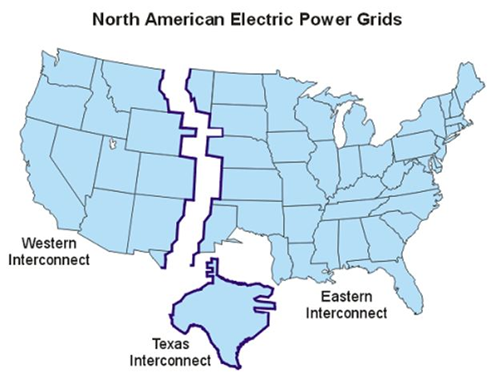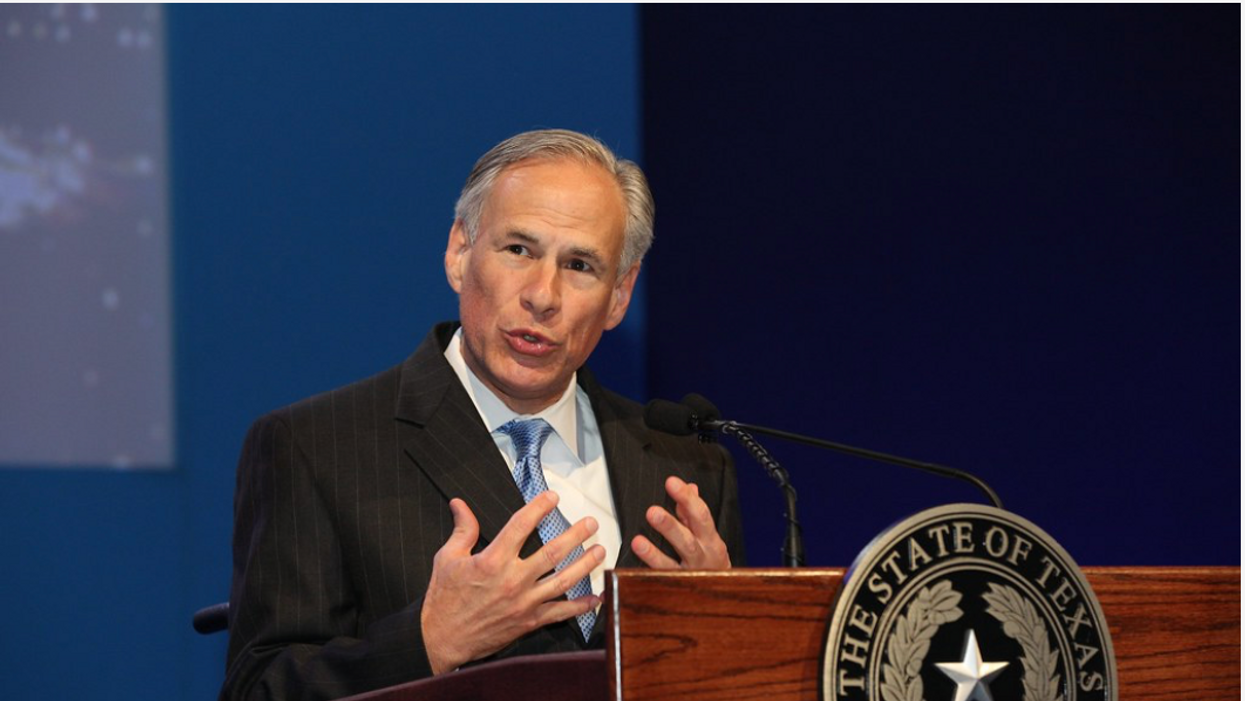Why The Rigged Energy System In Texas Won’t Improve Anytime Soon
Reprinted with permission from DC Report
The misery and death in Texas, where the state electric grid was taken down by unusual but predictable cold weather, underscore the misguided conservative Republican values of less regulation, devil-may-care burning of fossil fuels, dangerous tax cuts and unfettered trust in markets as the universal problem solver.
In Texas, the blame for the unheated homes, the dark urban skylines, and winter water shortages is on just one politician—Greg Abbott. He has been governor of the Lone Star state for more than six years.
Abbott gained notoriety in the past few days for making the ridiculous claim that Texans are freezing because windmills fail in the cold. The fact is that they are running just fine in such spots as Iowa, Minnesota, Alaska, Finland and even Siberia.
Texans froze because Texas state government:
- Failed to require that natural gas pipelines be built in anticipation of severe weather
- Didn't require sufficient natural gas storage for electric power plants
- Neglected to insist that the electric grid itself be hardened against severe heat and cold, more of which is certain as climate change generates raucous weather
What did Abbott do? He appointed all three members of the Texas Public Utility Commission -- who failed to ensure the adequacy of the Texas electric grid for all weather.
Inadequate Reserves
Abbott's commissioners, embracing his anti-regulatory philosophy, did not require adequate power generation reserves. That's crucial. When electric generators go down in extreme weather, accidents or even planned maintenance, there needs to be plentiful additional capacity to ensure the juice flows.
The savings from cheap-skating in this area are quickly overwhelmed by the damage done by blackouts and days without power in either extreme cold or extreme heat.
Allowing utilities to slash the size of their staffs, especially line workers, compounds a disaster.
The set-up for this disaster began years before Abbott was born in 1957. Two decades earlier, during the Great Depression, Texas exempted itself from the then newly established federal regulation of electricity reliability and pricing.
Separate Power Grid
 Most of Texas has its own power grid that doesn't connect to the massive Eastern U.S. or Western U.S. grids. The Panhandle and most of East Texas are on the Eastern Interconnection. The El Paso area is connected to the Western grid.
Most of Texas has its own power grid that doesn't connect to the massive Eastern U.S. or Western U.S. grids. The Panhandle and most of East Texas are on the Eastern Interconnection. The El Paso area is connected to the Western grid.
The rest of the state is under the system operator laughably named Electric Reliability Council of Texas, better known as ERCOT. Significantly, those areas connected to the rest of the country have not had issues.
That the Texas grid was not designed for predictable severe weather and lacked backup generating capacity has been known and documented for years. Yet under Abbott, the situation festered.
A blistering assessment of the Texas situation was provided to DCReport by two deeply informed electricity experts, Larry Kellerman, managing director of private equity investor I Squared Capital, and Robert McCullough, an independent utility economist in Oregon. They said: "The unfortunate state of the ERCOT power system can be summarized in two words: systematic unpreparedness. The origins of this disaster included the lowest reserve margins in North America, ignoring basic maxims of preparing for bad winter weather, and a market design that rewards shortages at the cost of consumers."
Kellerman's firm is a $24.5 billion private equity fund that invests in modernizing electric utility systems. McCullough is feared by utilities because of his ability to cut through their obfuscations with killer facts and smart financial analysis.
Getting Worse
The problems that Kellerman and McCullough documented in their report are only going to get worse so long as Abbott does what he has been doing. The governor comes up with crazy lies like blaming the proposed Green New Deal for his state's current electricity fiasco. His Republican allies in the legislature, by the way, are just as dishonest about the reasons the juice stopped flowing.
Indeed, anti-regulation ideology is so deep in the heart of Texas that Abbott's predecessor, Rick Perry, the Trump energy secretary, says Texans would rather freeze without electric power than let Washington regulate their grid.
Texas will have a terrible shortfall in its capacity to generate electricity at least through 2024, a National Electricity Reliability Council report shows. That means extreme hot or cold weather will result in more blackouts just when people most need air-conditioning or heating.
Texas fully embraced the idea of electricity markets to make for a stronger and more efficient electric system. It did so under auction rules sold to the Texas legislature by lobbyists for Enron. You remember Enron? It was the utterly corrupt, electricity-price manipulating Texas company whose top executives were tried and imprisoned after the company collapsed.
Some 14 years ago, I exposed the Enron-designed "electricity markets" for rules that inherently made prices rise, allowing power profiteers to gouge their customers' wallets.
Defenders of the Enron design of electricity auctions say that higher prices will prompt consumers to reduce their use of juice during peak demand periods. But without a convenient price change notification system how would you know that the price of power jumped ten-fold from five minutes ago?
Poor Economics
How can consumers respond to prices they don't know are rising – or falling? The only honest and economically sound answer is they can't. Abbott and his ill-informed appointees don't understand that, and don't want Texans to understand.
Kellerman and McCullough said Thursday the theory that "mandating even higher prices" will prevent blackouts "is simply poor economics." In Texas, the "widespread blackouts show that mandating high prices during emergencies has not created an incentive to build enough generation, make sure that it is operational during extreme weather or served consumers adequately."
And they note that the "privilege—not the inherent right—to participate in ERCOT's power marketplace" comes with a responsibility to apply well-established investment, design and operation practices "necessary to assure operational integrity during inclement weather."
Instead, the regulators appointed by Republican governors produced "a 20th-century solution for what should no longer be a 21st-century problem."
The cheapest and smartest way for electricity profiteers to fill their pockets is to eliminate generating capacity. Buying a fleet of power plants and then shutting one down allows profiteers to rig electricity markets so their profits balloon, as I showed here and here.
From $30 to $9,000
In Texas electricity that last week cost $30 soared to $9,000 once the bitter cold brought down much of the grid.
I've written about electricity regulation for more than four decades and taught its fundamentals for eight years to graduate business and law students at Syracuse University.
In 2006 in The New York Times, I showed how vulnerable the Texas electricity "market" is to manipulation by profiteers.
Creating electric grids that aren't up to the task is one of the ways that profiteers benefit. No American politician has done more to help profiteers than Abbott.
That Texans seem bewildered about their plight even though the problems have been known for years is not surprising. Texas utilities and their friends in office felt free under Abbott and his two Republican predecessors, Rick Perry and George W. Bush, to attack honest journalism about the electricity situation in Texas.
In particular there's the harassment of a Galveston newspaper reporter who wrote accurate pieces about facts that the Houston-based Reliant utility wanted to hide from its customers. Only one other Texas newspaper journalist wrote about the issue after which he was laid off.
One thing Texans should know is that going forward more deadly disasters caused by a lack of electricity generating capacity are predictable. The North American Electric Reliability Corp., assigned by Congress in 2005 to monitor reliability, found that only two of the 21 electric grids it studied will lack enough capacity to meet demand in 2024. That is a very short time in which to increase generating capacity.
The Canadian system serving Ontario province will be short 615 megawatts of capacity. The Texas shortfall will be six times that at 4,819 megawatts.
That electric generating capacity shortfall equals all the power needed to serve about 3.1 million homes. Texas has almost 10 million households.
When the predictable blackouts happen in the future will Texans know who is to blame for their misery? Or will they believe official fairy tales about wind turbines freezing up and the Green New Deal which as of now is only an idea?



